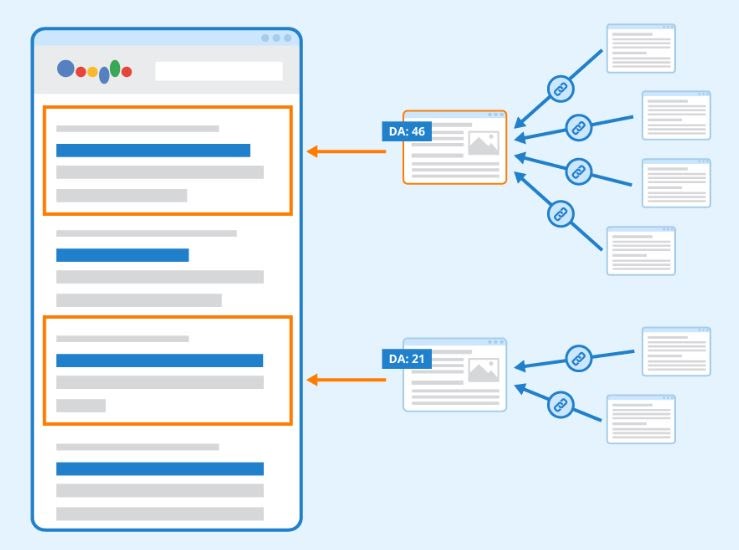1. Clarify Your Job Search Goals
Before you dive into your job search, take some time to clarify what you're looking for. This includes the following:- Industry or Field: Define your specific industry or niche (e.g., finance, healthcare, technology, marketing).
- Position Title: Understand the job titles or roles that align with your experience and skills. Sometimes job titles vary by company, so look at descriptions to ensure they're relevant.
- Location: Decide whether you're open to remote positions, relocation, or if you're focusing on a specific geographical area.
- Type of Employment: Are you seeking full-time, part-time, freelance, or contract work?
2. Leverage Online Job Boards
Online job boards are one of the most popular ways to find job openings across all industries. Here’s how to use them effectively:- Popular Job Boards: Websites like LinkedIn, Indeed, Glassdoor, and Monster aggregate job listings from various employers. Use filters (industry, location, salary) to narrow down your search.
- Niche Job Boards: Many industries have specialized job boards. For instance, if you're in tech, platforms like Stack Overflow Jobs or Dice may be better. Healthcare professionals might look at Health eCareers, while creative fields use sites like Behance or Dribbble.
- Alerts: Set up email alerts based on keywords and preferences to get notified when relevant positions are posted. This saves time and ensures you’re among the first to apply.
3. Use Company Career Pages
Many companies post job openings directly on their websites, often before they appear on job boards. If there are specific companies you're interested in, regularly visit their career pages to find opportunities that may not be widely advertised. You can also:- Create Profiles: Some organizations allow you to create profiles on their career pages. By submitting your resume and contact information, you may get notified when suitable positions become available.
- Networking Events: Many companies also list upcoming job fairs or recruiting events, giving you opportunities to meet hiring managers in person or virtually.
4. Network Effectively
Networking remains one of the most powerful tools in a job search. A large portion of job opportunities never makes it to public job boards and are instead filled through referrals. Here’s how to boost your networking efforts:- Attend Industry Events: Conferences, workshops, and seminars are great places to meet people in your field. Make it a point to connect with industry professionals and follow up with them on LinkedIn.
- Join Professional Associations: Many fields have professional organizations that offer exclusive job postings, mentorship programs, and networking opportunities.
- Informational Interviews: Reach out to professionals in your field and ask for informational interviews. These are informal chats where you can learn about their career paths and ask for advice—this often leads to job opportunities.
5. Leverage Social Media
Social media platforms, especially LinkedIn, are invaluable in the job search process. Here’s how you can utilize them:- Optimize Your LinkedIn Profile: Ensure your profile is complete with a professional photo, detailed work history, and skills relevant to your industry. Regularly post updates to stay active in your network.
- Follow Companies: On LinkedIn and Twitter, follow companies you're interested in. Many organizations post job openings or recruitment events directly on these platforms.
- Engage with Industry Content: Comment on and share relevant industry news, articles, and posts. This will keep you visible to your network and show your engagement with the field.
6. Work with Recruiters
Recruiters or headhunters specialize in matching candidates with employers. There are two main types:- Contingency Recruiters: They work on behalf of employers to fill specific positions. You don’t pay them; they’re paid by the employer.
- Retained Recruiters: These recruiters work exclusively with specific clients (employers) and are often involved in higher-level, more specialized searches. Working with a recruiter can provide you with inside information on job opportunities and help you navigate the interview process. Just make sure to partner with reputable firms with strong connections in your industry.
7. Utilize Staffing Agencies
Staffing agencies are another excellent resource, especially if you’re open to temporary or contract work. Many temp positions evolve into full-time roles. These agencies often have established relationships with large companies and can provide you with a steady flow of job opportunities in your field.8. Tailor Your Resume and Cover Letter
Each job application should be customized for the position you're applying for. This means:- Resume: Highlight key achievements and skills that are directly relevant to the job description. Use keywords that match the industry standards.
- Cover Letter: Personalize each cover letter to demonstrate your interest in the company and explain why you are a good fit for the specific role. Hiring managers appreciate when candidates take the time to craft a thoughtful application.
9. Prepare for Interviews
Once you start receiving interview requests, it's essential to be prepared. This includes:- Researching the Company: Learn about their mission, products, services, and work culture.
- Practicing Common Interview Questions: Rehearse answers to common questions like “Tell me about yourself,” “What are your strengths and weaknesses?” and “Why do you want to work here?”
- Ask Questions: Prepare questions for the interviewer that show your interest in the role and company.
10. Stay Organized and Persistent
Job searching can be a lengthy process. Keeping track of where you’ve applied and following up is crucial to staying organized. Use a spreadsheet or job search tracker to:- Note job titles, company names, and application dates.
- Record deadlines for following up on applications or sending additional documents.
- Track interview schedules and next steps.
Final Thoughts
Searching for job openings in your field requires a multi-faceted approach that combines online tools, networking, and thoughtful preparation. By clarifying your goals, staying active on job boards, and leveraging your network, you’ll be well on your way to finding the right opportunity. Keep refining your strategy and remain persistent; the right job is out there waiting for you! Read more :1= https://checkwebsitedr.com/blogs/how-to-search-for-reliable-information-on-the-internet/
2= https://checkwebsitedr.com/blogs/how-to-search-for-secure-and-private-browsing-options/
3= https://checkwebsitedr.com/blogs/how-to-search-for-family-history-and-genealogy-records/
4= https://checkwebsitedr.com/blogs/how-to-search-for-competitors-and-analyze-their-strategies/
5= https://checkwebsitedr.com/blogs/how-to-search-for-job-openings-in-your-field-a-step-by-step-guide/
6= https://checkwebsitedr.com/blogs/how-to-search-for-healthy-recipes-that-fit-your-diet/
7= https://checkwebsitedr.com/blogs/how-to-search-for-and-apply-for-grants/
8= https://checkwebsitedr.com/blogs/how-to-search-for-the-right-keywords-for-your-blog/
9= https://checkwebsitedr.com/blogs/how-to-search-for-local-services-near-you/
10= https://checkwebsitedr.com/blogs/how-to-search-for-the-best-travel-deals-and-discounts/


